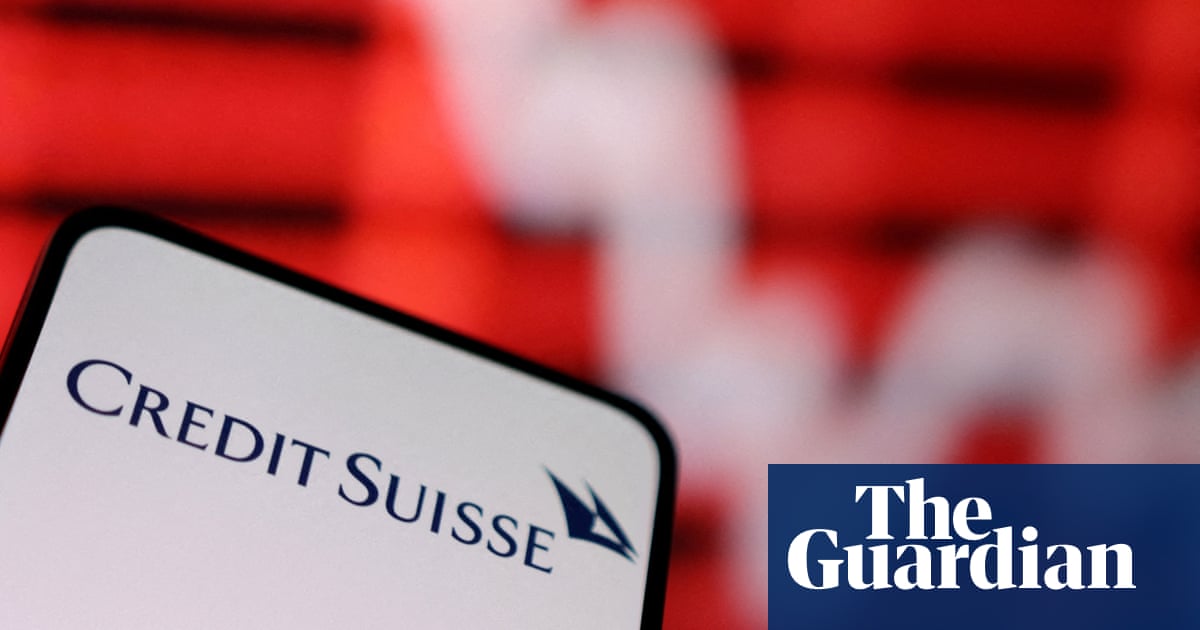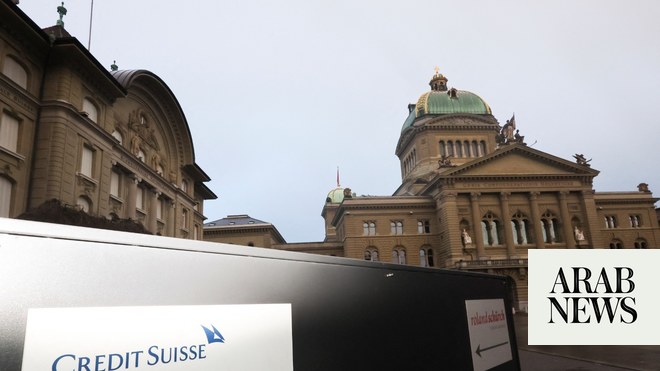
Credit Suisse shares came under renewed pressure on Friday, despite fresh attempts by central banks and politicians to calm fears about a crisis in the global banking industry sparked by the collapse of two US banks this week.
Shares in Credit Suisse, Switzerland’s second largest bank, fell 8% on Friday despite securing a £45bn emergency loan from the Swiss National Bank just days earlier to shore up its liquidity after a week of panic.
New figures showed that more than $450m (£369m) was withdrawn from Credit Suisse’s US and European managed funds between 13 and 15 March as retail and institutional investors pulled their money from the embattled lender, according to data from Morningstar Direct.
US bank First Republic also suffered a 25% fall in its share price, despite it securing a $30bn injection of emergency funds from America’s largest banks in a deal put together by the US treasury secretary, Janet Yellen, and the Federal Reserve chairman, Jerome Powell.
Growing unease in the market – which saw America’s Silicon Valley Bank and Signature Bank collapse – led the European Central Bank (ECB) to hold an emergency meeting on Friday to discuss the tumult.
The ECB supervisors – who have held two unplanned meetings this week – saw no contagion to eurozone banks, a source familiar with the meeting told Reuters. Banking deposits across the sector were said to be stable. The ECB declined to comment.
German finance minister Christian Lindner also sought to reassure investors and the public that there was not a “systemic financial crisis” and said the current situation was not likely to lead to a repeat of 2008.
Lindner said Bafin, Germany’s financial watchdog, and the Bundesbank, its central bank, were “closely and carefully” observing the situation, which he said was marked by specific problems at individual banks. “It is not a systemic financial crisis. The situation is therefore different from 2008,” he told Süddeutsche Zeitung.
The US president, Joe Biden, on Friday called on Congress to allow regulators to impose tougher penalties on the executives of failed banks, including clawing back pay and bonuses and making it easier to bar them from working in the industry again.
“No one is above the law – and strengthening accountability is an important deterrent to prevent mismanagement in the future,” Biden said. “Congress must act to impose tougher penalties for senior bank executives whose mismanagement contributed to their institution failing.”
The Federal Deposit Insurance Corporation (FDIC) can only claw back the compensation of banking executives if they act with “recklessness” or “willful or continuing disregard” for their bank’s health. Biden wants Congress to allow the regulator to impose penalties for “negligent” executives – a lower legal threshold.
America’s largest banks on Thursday night agreed to pump $30bn of emergency funds into First Republic, a San Francisco-based bank which experts warned could also have been teetering on the brink of collapse.
However, the rescue deal cobbled together by Yellen, Powell and JPMorgan Chase chief executive Jamie Dimon, failed to reassure investors. First Republic’s shares, which have lost three-quarters of their value since Wednesday, fell by 25% on Friday.
In a joint statement, the 11 banks which stumped up the money, who included Bank of America, Citigroup, Goldman Sachs and Morgan Stanley, said: “The actions of America’s largest banks reflect their confidence in the country’s banking system.
“Together, we are deploying our financial strength and liquidity into the larger system, where it is needed the most.”
However, billionaire activist hedge fund manager Bill Ackman said the injection of funds was a “fictional vote of confidence” and warned of serious concern that “financial contagion risk[s] spiralling out of control and causing severe economic damage and hardship”.
“Yellen has apparently pushed the SIBs [systemically important banks] to recycle some of the deposits they received from First Republic [Bank] back into FRB for 120 days,” he said. “The result is that FRB default risk is now being spread to our largest banks.”
In total, banks have borrowed about $300bn from the US Federal Reserve in the past week, the central bank said. Nearly half the money – $143bn – went to holding companies for Silicon Valley Bank and Signature Bank. The Fed did not identify the banks that received the other half of the funding or say how many of them did so.











